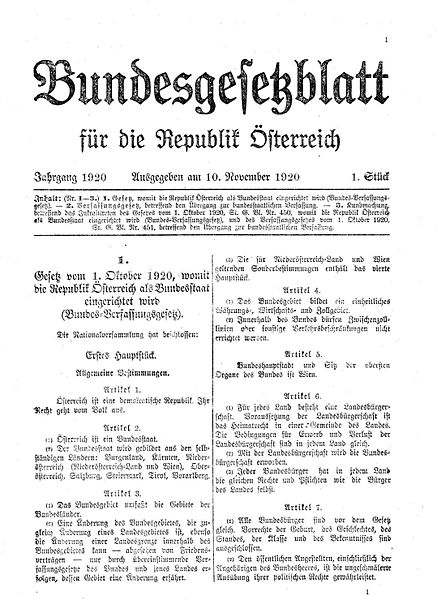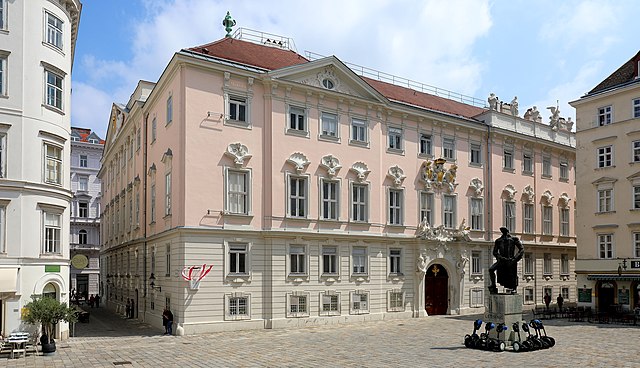Judicial review in Austria
The European and Austrian constitutions endow the Austrian court system with broad powers of judicial review.
All Austrian courts are charged with verifying that the statutes and ordinances they are about to apply conform to European Union law, and to refuse to apply them if not. A specialized Constitutional Court checks statutes for compliance with the Austrian constitution and executive ordinances for compliance with Austrian law in general.
The 1920 Federal Constitutional Law established judicial review of legislation in Austria
Constitutional Court
Supreme Administrative Court
Austrian constitutional thought continues to be heavily influenced by the work of Hans Kelsen
The judiciary of Austria is the system of courts, prosecution and correction of the Republic of Austria as well as the branch of government responsible for upholding the rule of law and administering justice. The judiciary is independent of the other two branches of government and is committed to guaranteeing fair trials and equality before the law. It has broad and effective powers of judicial review.
A statue of Iustitia in the Austrian Palace of Justice, the seat of one of the country's top courts
The seat of the Wels regional court
The seat of the Feldkirch regional court
The Palace of Justice, seat of the Supreme Court of Justice since 1881








